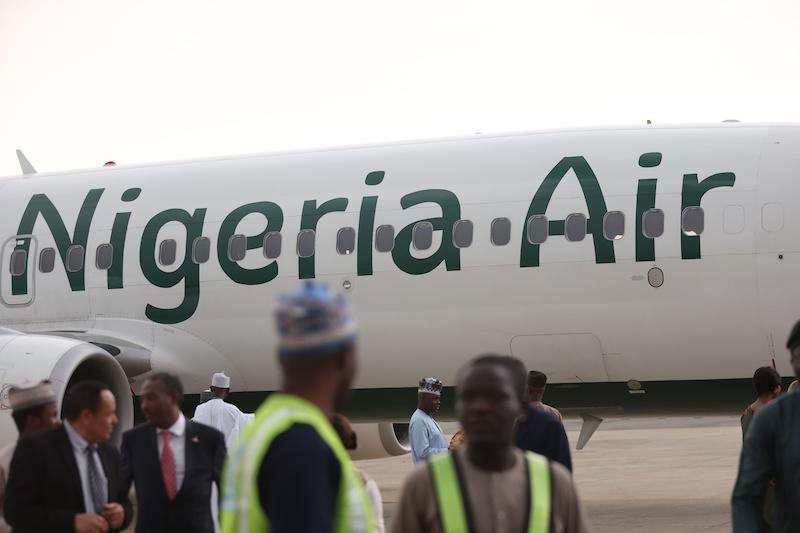
LONDON—Ethiopian Airlines Chief Commercial Officer Lemma Yadecha Gudeta believes the Nigeria Air joint venture (JV) “will happen” despite political setbacks that have stalled the start-up airline.
Months back, Ethiopian positioned a Boeing 737-800 in Nigeria Air livery to Abuja to perform a route-proving flight as a final step toward securing an air operator certificate. But then the process stalled.
“It was almost a done deal,” Gudeta told Aviation Daily during a one-to-one interview in London. “But there was a change of government, and the new authorities in Nigeria wanted to look into how the agreements were made.”
A group of Nigerian airlines also launched a High Court legal challenge to block the JV airline, which is 49% owned by Ethiopian. The plan was for Nigerian investors to take a 46% stake, with the government holding just 5%.
Ethiopian Airlines had already made eight aircraft—two 787s and six 737 MAXs—available for the Nigeria Air launch fleet. “We did all the required paperwork. We selected the aircraft,” Gudeta said. “Honestly, it was disappointing for us, because we had put all the resources aside to create Nigeria Air.”
However, Gudeta believes there is still potential to launch “a very profitable” JV airline. He said the Nigerian government appears to have faith in Ethiopian’s ability to set up the airline, but they need time to do further evaluations.
“We are waiting for them to tell us when to start the airline, but we are very confident that’s going to happen very soon,” he said. “We’ve trained the people; we’ve put all the required things in place. We are just waiting for the go-ahead from the Nigerian government.”
Gudeta said it is essential for the government and traveling public to be on board with the project.
Ethiopian is also deciding whether to revive Ethiopian Mozambique Airlines, based in Maputo, Mozambique. That airline launched in 2018 and suspended operations just after the COVID pandemic hit. Ethiopian Mozambique Airlines operated three De Havilland Canada Dash 8-400s, which have since been redeployed on Ethiopian’s network from Addis Ababa.
“It is not yet closed, but it is paused,” Gudeta said. “We are monitoring the local situation, for us to either revitalize it—and restart it—or close it forever. We have to reach an agreement with the Mozambican government on whether to proceed.”
Another JV—Chad-based Tchadia Airlines—is now permanently closed, after being liquidated due to the pandemic and local instability. Tchadia Airlines operated a pair of Dash 8-400s.
Meanwhile, Togo-based ASKY, Malawi Airlines, and Zambia Airways—which are run by Ethiopian Airlines under equity partnerships—are all doing well.
ASKY, which was Ethiopian’s first JV airline, is currently operating 14 737s to more than 25 destinations. ASKY already flies from Lome, Togo, to Johannesburg and Nairobi, Kenya, but new long-haul services to Paris and Madrid are under evaluation, with Dubai potentially following later. Ethiopian currently operates one of its 787s via Lome to Washington in codeshare with ASKY.
“In a very short period, ASKY will have its own CEO, rather than a CEO seconded from Ethiopian Airlines,” Gudeta said. “It is profitable, and a dividend will be paid out to shareholders this year. When you run an airline in Africa, this kind of success is very rare. Therefore, we are we are very confident that this kind of model works.”
Malawi Airlines currently has two 737s in operation, with a third 737 set to join the fleet once maintenance work has been completed. “They are also profitable and hopefully the shareholders will get their money very soon,” Gudeta said.
Zambia Airways currently operates a single Dash 8-400 and a 737, and preliminary discussions are underway for a second 737.
